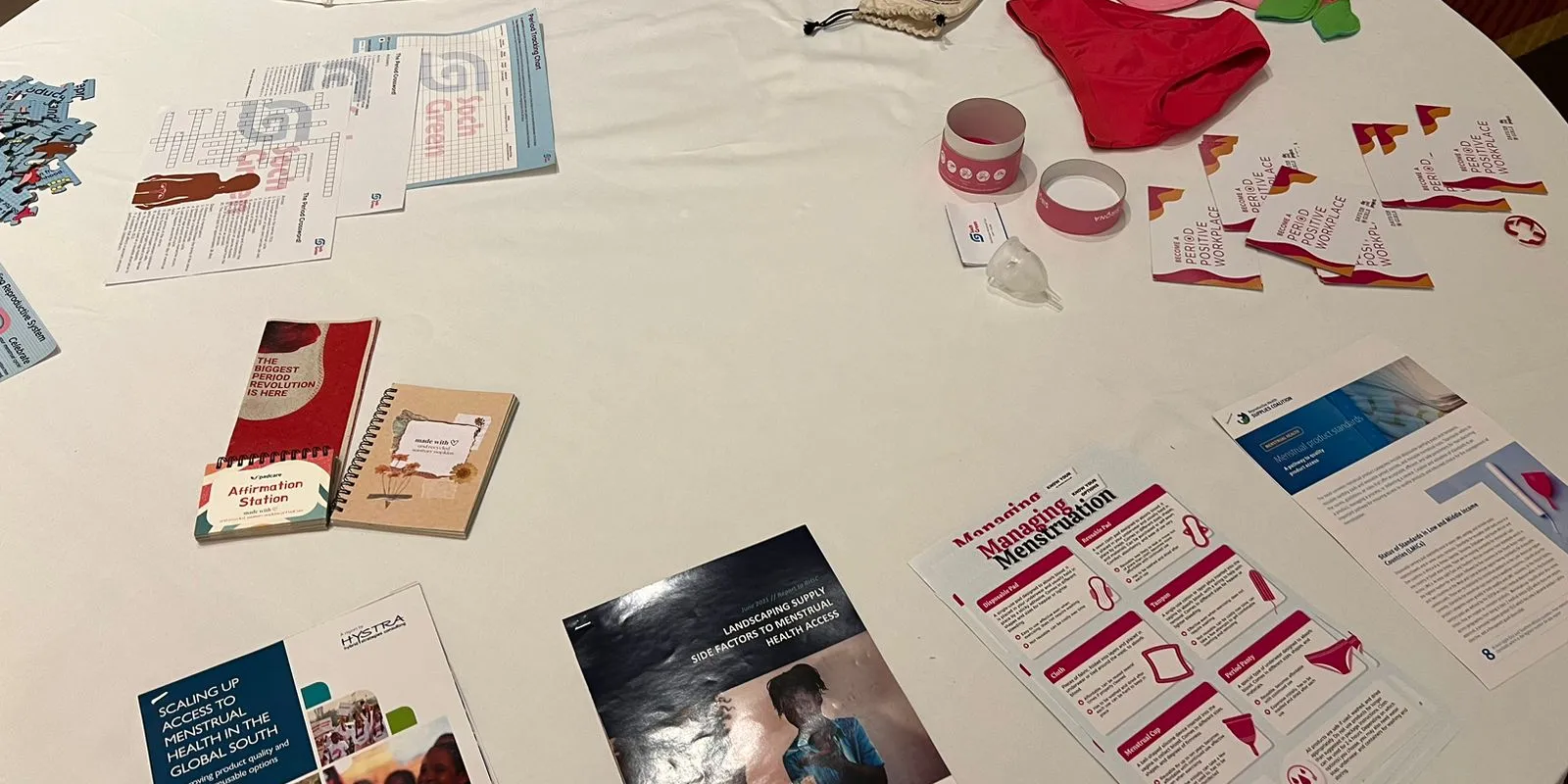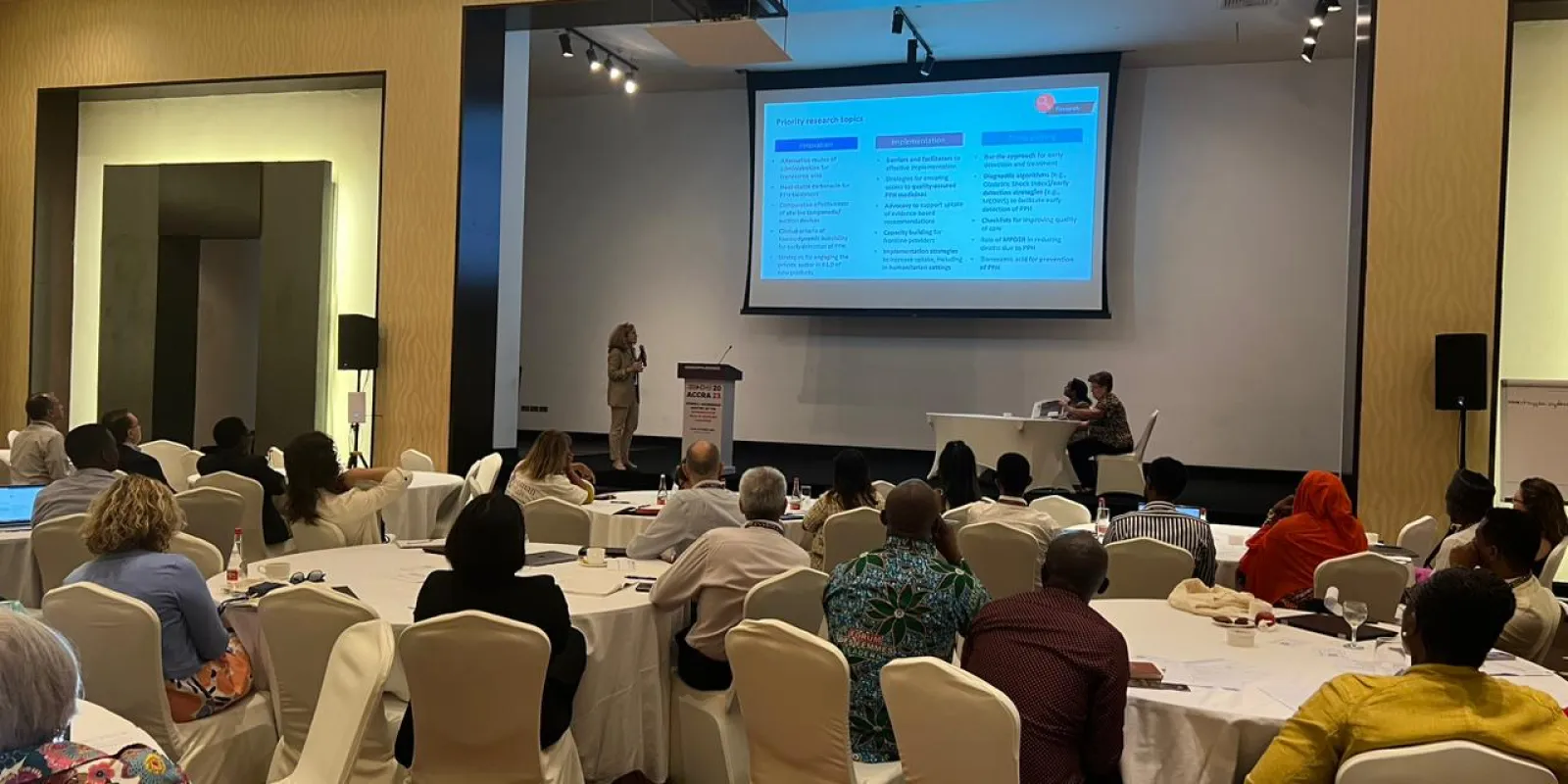
Blog, October 2023
By Evelyne Wangui, Communications Associate, SEMA
When we talk about water, it's often in the context of agricultural activities. However, one of the key takeaways from attending a menstrual health session at the ongoing Reproductive Health Supplies Coalition (RHSC) General Members Meeting (GMM), is the vital role that the availability of water plays in promoting sexual reproductive health and rights.
Imagine not being able to access water when you need to wash. Think about how undignified this must feel. Visualize a young girl who may not have the means to stay clean during her menstrual period. Picture the mental anguish this causes her.
On the second day of the 2023 RHSC GMM, a diverse group of nearly 300 individuals, including government representatives, private sector professionals, academics, and the development sector players, gathered in Accra City, Ghana. Their primary focus was a discussion on "Integration" in the context of menstrual health and how it aligns with the advancement of sexual reproductive health and rights.
While this may not sound unusual, there were critical elements of this discussion that stood out. These include the expanded focus to encompass other essential supplies that go beyond menstrual hygiene materials and medication related to menstruation pain management and related disorders. Water, sanitation, and hygiene (WASH) occupied a good chunk of the time allotted, a reflection of its criticality in transforming the well-being of women and girls.
According to the World Health Organisation (WHO), an estimated 500 million women lack access to menstrual products and adequate facilities for menstrual hygiene management (MHM). Yet, to effectively manage their menstruation without embarrassment and stigma, girls and women require access to water, sanitation, and hygiene (WASH) facilities.
The inability to maintain cleanliness and comfort during menstruation due to the lack of water affects the self-esteem and mental well-being of women and girls. In addition, girls may miss school during their periods and women may also miss work, impacting their economic well-being.
The 2023 RHSC GMM session on menstrual health sought to address this by revamping the current approach to menstrual health supplies. Stakeholders expressed their commitment to jointly developing a menstruation health strategy to encompass additional elements that contribute to the enhancement of menstrual health, with water being a fundamental component.
In the near future, stakeholders will employ this new strategy, which incorporates essential components, to advocate for the well-being and comfort of women and girls, ultimately advancing sexual reproductive health and rights.
SEMA is a member of the Reproductive Health Supplies Coalition a global partnership of public, private, and non-governmental organizations dedicated to ensuring that people in low- and middle-income countries can access and use affordable, high-quality reproductive health supplies to ensure their better reproductive health.
The Menstrual Health Supplies Workstream provides a forum to deliberate and find solutions to issues related to the supply of menstrual health commodities and the issues that prevent women from gaining access to affordable, quality menstrual health supplies.

